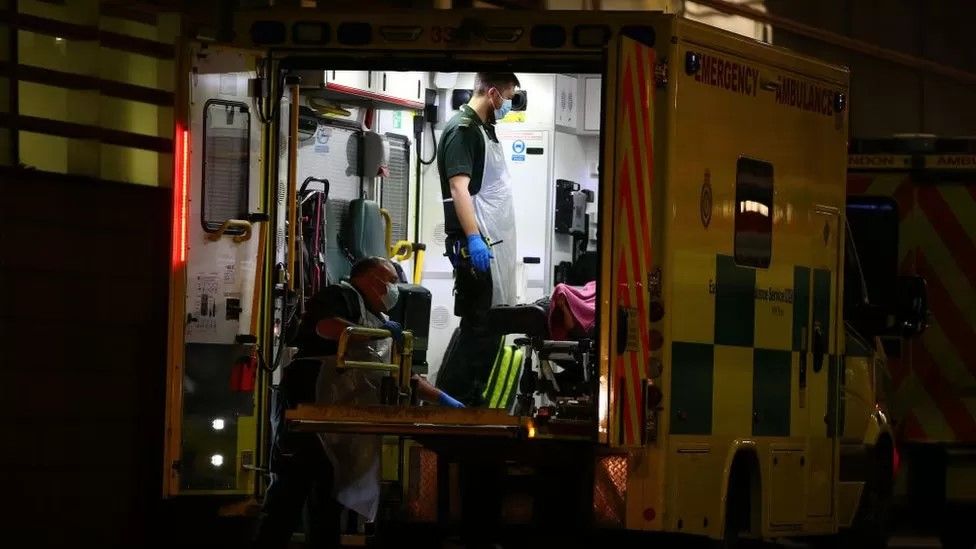ARTICLE AD BOX
 Image source, Getty Images
Image source, Getty Images
Ambulance crews were experiences "handover delays" at hospitals across Wales
An ambulance spent 28 hours outside a hospital after an "extraordinary incident" was declared due to delays.
The Welsh Ambulance Service said 16 ambulances had waited outside the emergency department at Morriston Hospital, Swansea, at one time.
It said multiple sites across Wales were affected, "specifically" in the Swansea Bay health board area.
Lee Brooks, director of operations, told BBC Radio Wales Breakfast the situation was "heart-breaking".
The service said people should only call 999 if their emergency was "life or limb threatening".
Judith Bryce, assistant director of operations at the Welsh Ambulance Service, said on Sunday the service was experiencing "patient handover delays outside of emergency departments".
"This is taking its toll on our ability to respond within the community," she said.
Image source, Getty Images
Image caption,At the peak of the delays 16 ambulances were queued outside Morriston Hospital
"Approaching our declaration of an extraordinary incident, we have experienced multiple episodes of prolonged patient handover at multiple sites across Wales."
She said additional managerial and clinical support had been brought in at Morriston.
"Regrettably, this means that some patients may be asked to make alternative hospital travel arrangements if an ambulance is not available," she said.
"We apologise for the consequence of this action and ask the public to please use services wisely."
'Not great for patient dignity'
On Monday, Lee Brooks, director of operations for the Welsh Ambulance Service, told BBC Radio Wales Breakfast the situation had been "particularly challenging".
"We had a couple of sites across Wales where we were experiencing long waits for patients to move from ambulances to emergency departments, but most of it at Morriston Hospital in Swansea," he said.
"When that happens that of course has an impact on our ability to respond to other patients in the community."
He added the trust was "creating more capacity to respond to patients" and that response to red category patients has "nearly doubled in the last three, four years".
"Of course, by month we're losing in the region of 19,000 hours, which is almost a week's worth of ambulance capacity, so that's quite a chunk taken out of our ability to respond."
He said the problem was linked to "broader patient flow constraints" and was expected to worsen over the winter.
"This is generating a huge amount of frustration… it's not a great experience for patients, it's not great for dignity."
He described the situation as "heart-breaking".

 1 year ago
28
1 year ago
28








 English (US) ·
English (US) ·